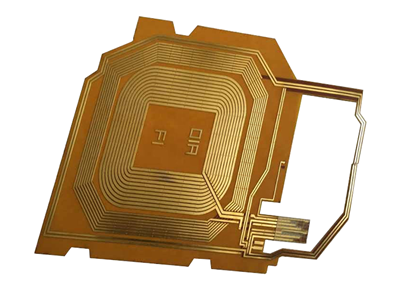In the realm of electronic manufacturing, Polyimide Flexible Printed Circuits (FPC) have emerged as a cornerstone technology, offering a unique combination of flexibility, durability, and performance. Understanding the properties and applications of Polyimide FPC is essential for engineers, designers, and manufacturers seeking to leverage its capabilities effectively.
Polyimide FPC, also known as flexible circuits or flex circuits, is a type of printed circuit board (PCB) that is made from a flexible substrate material known as polyimide. Polyimide is a high-performance polymer known for its excellent thermal stability, mechanical strength, and chemical resistance. These properties make it ideal for use in environments where traditional rigid PCBs may be impractical or insufficient.

Polyimide FPC exhibits several key properties that distinguish it from other types of PCBs:
Flexibility: Perhaps the most notable characteristic of Polyimide FPC is its flexibility. Unlike rigid PCBs, which are made from rigid materials such as fiberglass or FR4, Polyimide FPC can bend and flex without compromising its structural integrity. This flexibility allows for innovative designs and compact form factors that would be impossible to achieve with rigid PCBs.
Thermal Stability: Polyimide is highly resistant to heat and can withstand temperatures ranging from -200°C to 300°C without significant degradation. This makes Polyimide FPCs suitable for applications where thermal management is critical, such as aerospace, automotive, and medical devices.
Chemical Resistance: Polyimide FPCs exhibit excellent resistance to a wide range of chemicals, solvents, and corrosive substances. This property makes them well-suited for harsh operating environments where exposure to chemicals is common.
High-Density Interconnects: Despite their flexible nature, Polyimide FPCs can accommodate high-density interconnects, allowing for the integration of complex electronic components and circuits in a compact space.
The unique properties of Polyimide FPC make it suitable for a wide range of applications across various industries:
Consumer Electronics: Polyimide FPCs are commonly used in consumer electronics such as smartphones, tablets, and wearable devices. Their flexibility and lightweight construction make them ideal for applications where space is limited and durability is essential.
Automotive Electronics: In the automotive industry, Polyimide FPCs are used in a variety of applications, including instrument clusters, airbag systems, and infotainment systems. Their ability to withstand high temperatures and harsh operating conditions makes them well-suited for automotive applications.
Medical Devices: Polyimide FPCs play a crucial role in medical devices and equipment, where reliability and performance are paramount. They are used in applications such as pacemakers, defibrillators, and medical imaging equipment.
Aerospace and Defense: In the aerospace and defense sectors, Polyimide FPCs are used in avionics, communication systems, and radar systems. Their lightweight construction, high reliability, and resistance to temperature extremes make them ideal for aerospace applications.
Polyimide Flexible Printed Circuits (FPCs) offer a versatile and reliable solution for a wide range of electronic applications. Their unique combination of flexibility, thermal stability, and chemical resistance make them ideal for industries where traditional rigid PCBs may be impractical or insufficient.
By understanding the properties and applications of Polyimide FPCs, engineers, designers, and manufacturers can leverage this technology to create innovative and reliable electronic products that meet the demands of today's rapidly evolving marketplace. As technology continues to advance, Polyimide FPCs are poised to play an increasingly important role in shaping the future of electronic manufacturing.
By continuing to use the site you agree to our privacy policy Terms and Conditions.